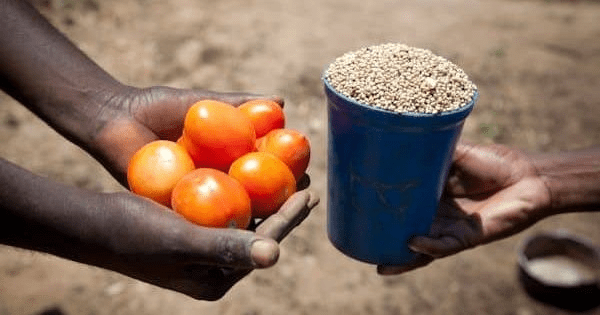
5 Countries Where Trade by Barter Still Exists: How Venezuela, Iran, Zimbabwe, Papua New Guinea, and Cuba Rely on Bartering in the Modern World
Fiona Nanna, ForeMedia News
6 minutes read. Updated 7:12PM GMT Mon, 11nt November, 2024
Bartering, often viewed as a relic of the past, is still alive and well in some corners of the globe. Long before the invention of money, people exchanged goods or services directly to meet their needs. For instance, a farmer with an abundance of crops could trade them with a neighbor who had livestock. While the modern world predominantly relies on money for transactions, barter trade remains a vital practice in several countries, particularly in areas where currency is unstable or inaccessible.
Here’s a closer look at five countries where bartering continues to thrive:
1. Venezuela: The Economic Necessity of Bartering
Country: Venezuela
City: Caracas, Rural Areas
In Venezuela, bartering has become a necessity for many people, primarily due to the country’s ongoing economic struggles and hyperinflation. With the rapid devaluation of the Venezuelan bolívar, many individuals find their money losing value almost as soon as they earn it. This unstable financial environment has led people, particularly in rural regions, to resort to bartering as a means of securing essential goods.
For instance, a family might trade rice for cooking oil, or sugar for soap, in exchange for what they need. While bartering may seem like a throwback to simpler times, in Venezuela, it’s a vital economic tool that helps locals survive in a world where the currency can be unpredictable. Barter trade is not just practical; it’s often the only way for many to meet their daily needs.
2. Iran: A Strategic Approach to International Trade
Country: Iran
City: Tehran, Regional Trade Areas
In Iran, bartering isn’t limited to local exchanges—it extends to international trade as well. Due to stringent economic sanctions imposed by the global community, Iran finds it difficult to participate in conventional trade deals. To bypass these restrictions, Iran sometimes exchanges oil for essential goods, bypassing traditional financial systems.
This barter-based trade allows Iran to secure vital resources despite the sanctions. Though primarily used in international contexts, the bartering concept is ingrained in Iran’s approach to managing its economic restrictions.
Explore how economic sanctions affect Iran’s trade practices.
3. Zimbabwe: Bartering Amid Inflation
Country: Zimbabwe
City: Harare, Rural Areas
Zimbabwe has a well-documented history of severe hyperinflation, where the local currency at one point became nearly worthless. During these crises, communities in rural Zimbabwe turned to bartering to keep their economies afloat. People traded livestock, grains, vegetables, and other essential commodities to meet their needs.
Though the country has made efforts to stabilize its currency in recent years, bartering still thrives in some rural regions where people feel the safest conducting trade outside of the volatile formal economy.
Read more about Zimbabwe’s inflation history here.
4. Papua New Guinea: Tradition and Necessity
Country: Papua New Guinea
City: Port Moresby, Rural Villages
In the highlands of Papua New Guinea, bartering is not just a means of survival—it’s deeply rooted in the culture and traditions of local communities. In isolated villages, people trade goods such as fish, crops, and handmade crafts. Interestingly, items like shells are sometimes used as a form of currency, reflecting the diversity of trading practices that still exist here.
While bartering is essential for securing goods in remote areas, it also serves as a way to strengthen community ties. For many in Papua New Guinea, trade is not just an economic activity but a cultural and social one, integral to maintaining harmony and solidarity within communities.
5. Cuba: A Practical Response to Economic Restrictions
Country: Cuba
City: Havana, Rural Areas
In Cuba, bartering is an informal but important aspect of daily life, particularly in the face of economic restrictions and limited access to goods. Due to the country’s limited market access and reliance on imports, locals often engage in barter to obtain necessary items. Cubans might trade fresh produce, skills, or household goods to cover the gaps left by shortages.
For example, someone might exchange eggs for rice, or offer bicycle repair services in exchange for groceries. This system not only helps the local population navigate scarcity but also fosters a sense of mutual support among the community.
Explore Cuba’s economic restrictions and barter culture.
Why Bartering Still Matters
Bartering is more than just a fallback in tough times; it represents resilience in the face of economic challenges. In countries where financial systems are unstable or where access to currency is limited, bartering allows individuals and communities to continue exchanging goods and services. Whether driven by necessity, tradition, or both, the practice of bartering plays a crucial role in sustaining communities in various parts of the world.
By learning about these practices, we gain a deeper understanding of the adaptability of human trade and its ongoing importance in regions that may otherwise be overlooked by the global economy.
Meta Description: Barter trade, an ancient system of exchanging goods and services without currency, is still practiced in some countries. Discover how Venezuela, Iran, Zimbabwe, Papua New Guinea, and Cuba rely on bartering in today’s economy.

